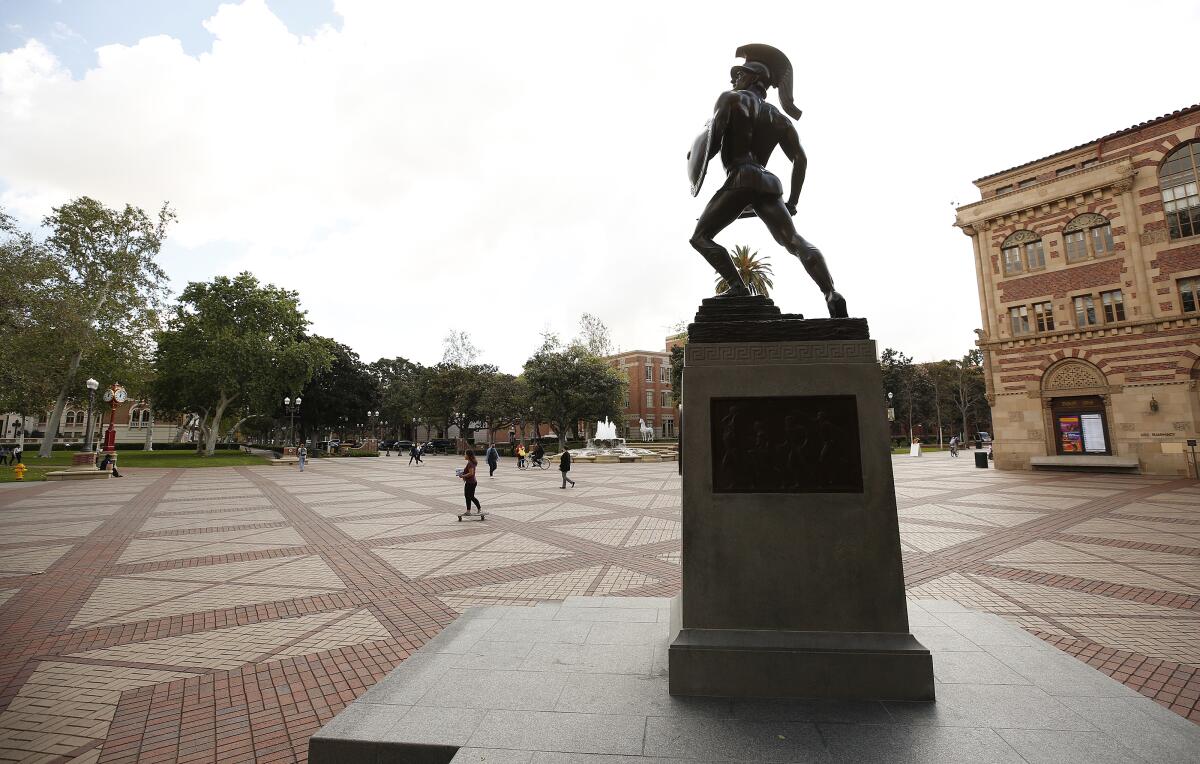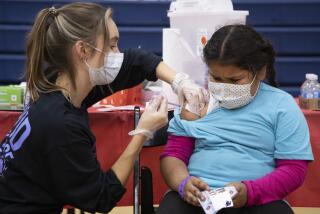USC likely to require COVID-19 boosters, weighs a spring 2022 remote start amid Omicron

USC announced Friday that it is considering a remote start to the Spring 2022 semester and will likely ask students to provide proof of COVID-19 booster shots, joining other California higher education institutions in issuing precautions as coronavirus cases rise amid the Omicron variant threat.
After monitoring the rise in COVID-19 cases on campus, in the community and at other higher-education institutions, the university said it is “evaluating a number of options” for the spring semester, including a remote start, and will announce a final decision by the end of next week. It is likely that the university will require COVID-19 boosters, and an official announcement on that is also expected soon.
“This fall, our protocols were successful in preventing outbreaks of COVID-19 and spread within our classrooms and workplaces,” the university said in a health advisory. “We are committed to keeping our campus likewise safe in the spring.”
USC is not alone in preparing students as they leave campus for winter break for possible changes when they return in January.
Stanford University announced Thursday that students returning from winter break will go back to remote learning for two weeks and will be required to obtain COVID-19 booster shots, joining other mainly East Coast universities.
When the semester begins Jan. 3, Stanford students will also be required to show proof of a booster shot by Jan. 31, with exceptions for those with medical and religious accommodations. The university will also continue previous restrictions placed on student gatherings for the first two weeks, restricting some to outdoor events and limiting food and drinks.
“We want to minimize disruptions to students’ coursework and also provide as much predictability as possible for both students and instructors,” Provost Persis Drell and Associate Vice Provost Russell Furr said in a message to the campus community. “The current uncertainty around Omicron poses a number of logistical challenges for the start of in-person classes, particularly if students either test positive over the break and cannot travel back to campus on time, or test positive upon arrival and need to isolate.”
Occidental College in Los Angeles also announced Thursday that it will require eligible students, staff and faculty to show proof of a booster shot by Jan. 18, citing the rise of the Omicron variant and spread at Cornell University.
“We understand that sending a message like this just before the College shuts down for winter break is far from ideal, but we must adapt to the circumstances of the pandemic as they develop. We want to give everyone as much advance notice as possible,” Occidental officials said in a statement.
On Wednesday, University of California President Michael V. Drake sent a letter to the UC community in an effort to encourage booster shots.
“Although there is still much we don’t know about the Omicron variant, public health officials have made clear that the variant has the potential to spread quickly,” Drake said, noting the increased concern due to the holiday season. “Vaccination, including boosters, is still our best line of defense.”
At UCLA, students who live in university housing on and off campus will be required to take a COVID-19 test after returning from travel, the university said. UC Irvine has not changed plans for the spring, according to spokesman Tom Vasich, but he added that the campus plans to “closely monitor the impact of the Omicron variant and transmission levels, and make adjustments as needed.”
The two-week notice to Stanford students allows them and their professors to prepare for remote instruction. Students should not change their travel plans but are being asked to get tested before returning to campus, officials said. The Thursday message did not say whether university employees will also be required provide proof of COVID-19 boosters.
The announcement comes as the country faces a rise in coronavirus cases during the holiday season and as thousands of students travel home. Other universities, including Princeton and Cornell, have moved to allow students to take exams remotely this semester. Princeton and Harvard universities have said students will be required to receive COVID-19 booster shots when they return to campus in the spring.
More to Read
Start your day right
Sign up for Essential California for news, features and recommendations from the L.A. Times and beyond in your inbox six days a week.
You may occasionally receive promotional content from the Los Angeles Times.







